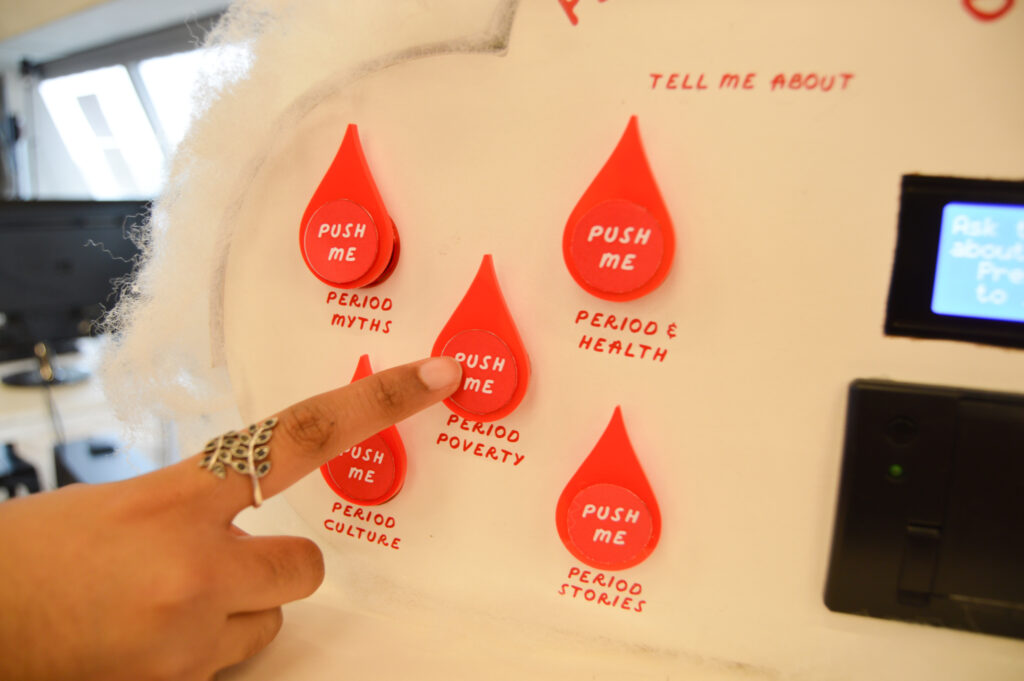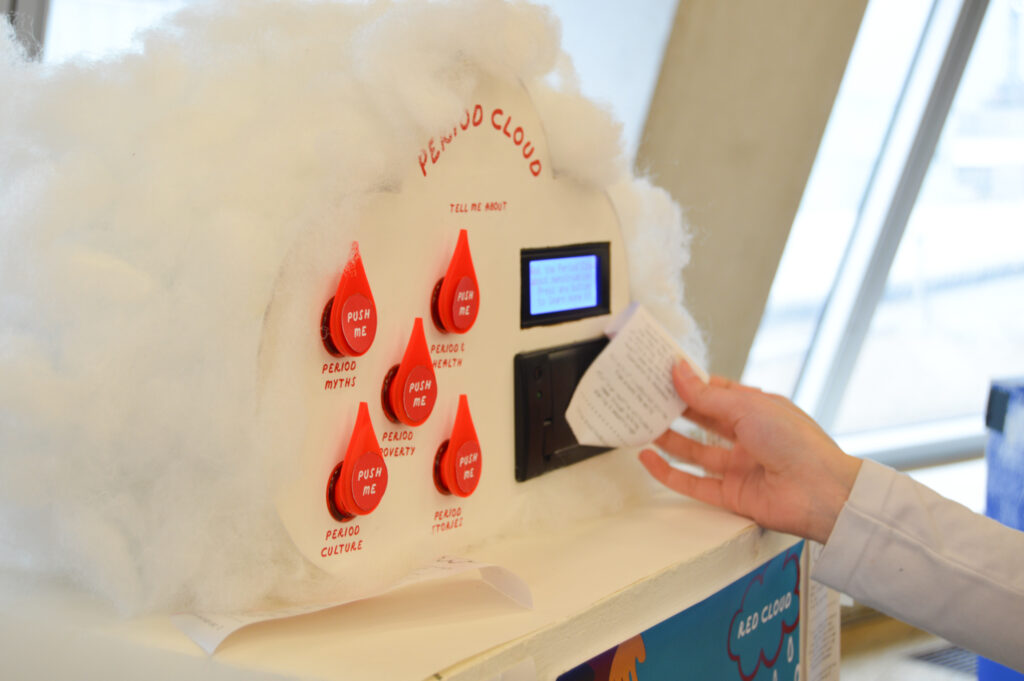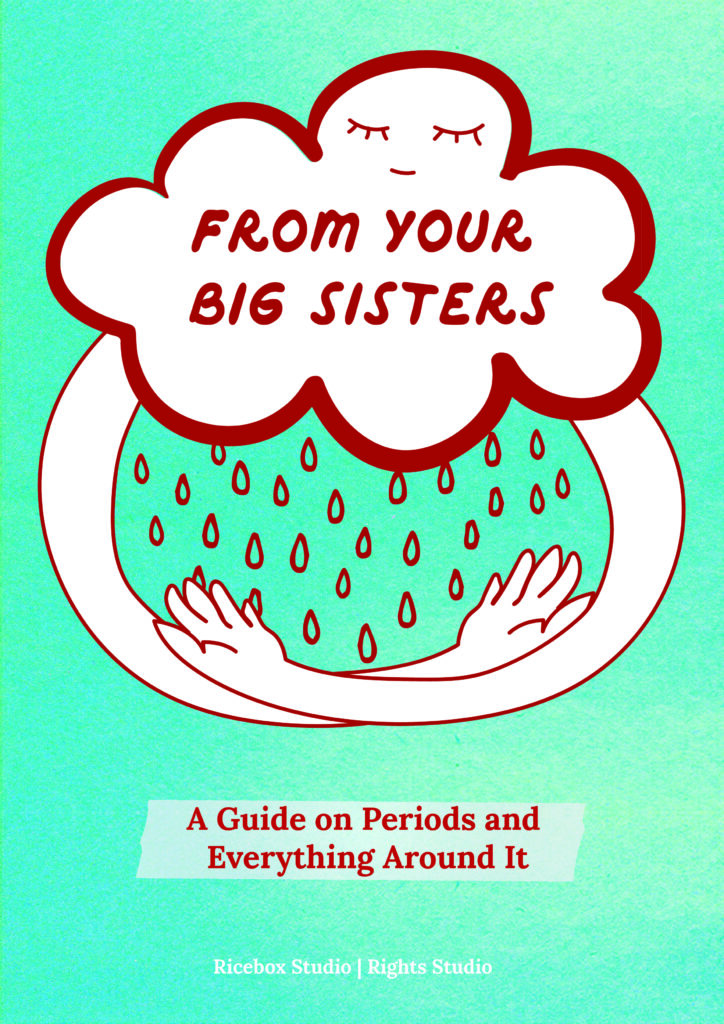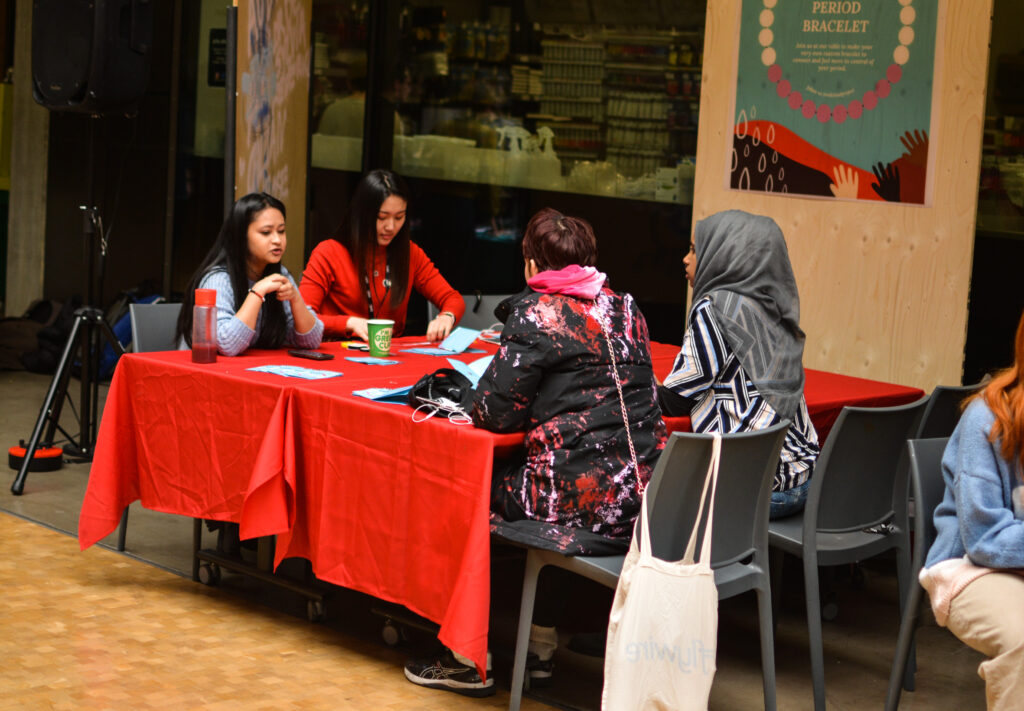The fellowship was piloted in 2019/20 with four BA Graphic Design alumni from University of the Arts London – Camberwell College of Arts: Safiya Ahmed, Bristy Azmi, Maria Than and Anna Tsuda.
The first pilot was made possible thanks to a donation received from a close partner of CRIN, Child Soldiers International which closed down in June 2019. CRIN was honoured to be chosen as the recipient of remaining funds and so chose to use these funds to launch the fellowship.
You can read about The Red Cloud project below.
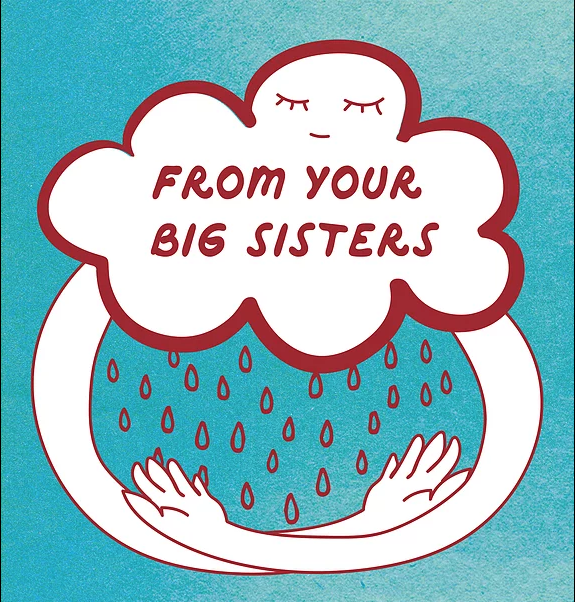
Why Menstruation?
The idea to do a project on period poverty and stigma came out of a conversation with Basma Osman (from CRIN) and Safiya Ahmed (from the University of the Arts London) at the Tate Exchange in 2019.
We invited Safiya, Bristy, Anna and Maria to explore this issue further through a creative means of their choice.
Titled The Red Cloud Project, our fellows created artwork, illustrations, exercises and games for young women to better understand their periods. They also interviewed religious leaders from around the world to talk about stigma and shame, and organised a crowd-sourcing campaign to collect personal stories from around the world.
The result is a beautiful book on menstruation and a printing machine which gives you facts and myths around periods.
Aims of the Book
This book was intended to raise awareness on the issue of period poverty and stigma, increase accessibility of information, encourage conversation and empower readers through content such as reflective exercises, crowd-sourced stories, interviews and more.
Read more about the content created to accompany the book below ↓
- Interactive Box: The Period Cloud
- Workshop: Period Tracking Bracelet Workshop at MenstrUAL Festival
- Podcast: Empower Period – Menstruation in the Media
- Online Event: One World Period
- Book: From Your Big Sisters (book version) [coming soon]
- Website: From Your Big Sisters (web version) – [coming soon]
Impact
Since then, our fellows have set up their very own award winning design practice called Ricebox Studio which describes itself as ‘an inclusive practice created by 4 BAME designers – Maria, Bristy, Anna and Safiya – which focuses on design for social good using creative tech, interactive and user-centered design, education, and visual communication. We view each project as a creative seed that we’re planting in people’s minds to encourage conversations and actions around tackling various social issues.’
You can read more about the Ricebox Studio here.

